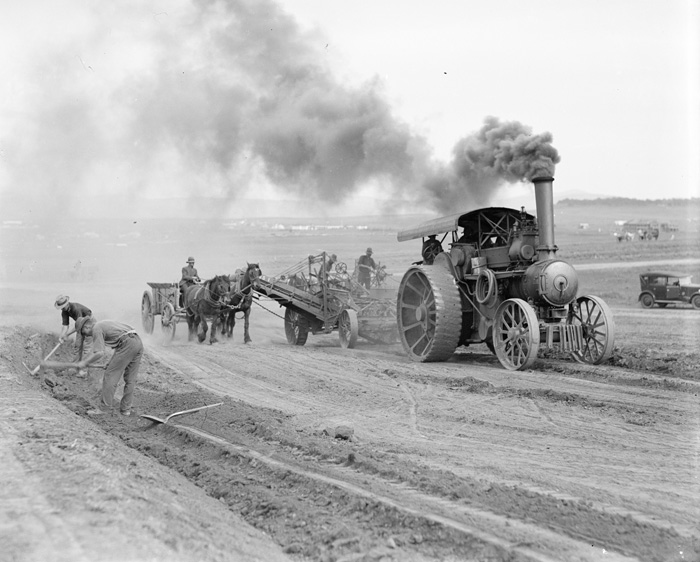During the 2013 election campaign Tony Abbott repeatedly promised to build the roads of the 21st century. Sadly, this wasn’t a nifty metaphoric flourish reflecting a program of investment in Internet infrastructure and education to drive economic growth. When Abbott said roads, he meant roads; coal miners need roads, ports, and cheap labour, not the Internet. You could be forgiven for thinking Abbott was actually saying he would rebuild the roads of 20th century, rather than the digital roads of the 21st century. Recently, as if to confirm just how they have missed how rapidly technological change is transforming the Australian social, political, and business landscape, the Liberal Party messed up 3 times. First they had to dis-endorse a Victorian state election candidate for being racist and homophobic on Facebook, then last week they fumbled an policy change to retain Australian’s meta-data for up to 2 years, and lastly they were found to have clumsily redirected the defensively registered domain name abbottlies.com.au to liberalparty.org.au.
In the past 10 years with the burst of rapid change dramatically impacting traditional businesses and traditional economies.
7.50 million Australians connect to the Internet via a mobile phone and 14.24 million access the internet from their home.
In 2012 a staggering $237 billion worth of goods or services were sold online by Australian businesses.
Australians are now spending 23 hours a week online, more than they do watching television.
The average lifespan of companies on the Standard & Poor 500 has dropped from 75 years in 1937 at the height of the Great Depression, to 18 in 2011.
Large media companies like Fairfax Ltd and News Ltd are rapidly losing market share and their profits are declining as a result of Australians changing how they consume media. Australia Post’s formerly indomitable letters business lost $218 million in the last financial year.
Large retailers like Myer and David Jones have been forced to compete with more nimble and price competitive international retailers, and the David Jones Board recently gave up and sold out to Woolworths South Africa.
By 2017 there will be no car manufacturing industry in Australia.
When the Liberal Party registered abbottlies.com.au prior to the release of the wildly unpopular 2014 budget, that should have been the end of it. Someone at Liberal Party HQ should have been quietly patted on the back for a fantastic defensive domain registration and the ALP, media, and twitter should have been blissfully unaware.
Unfortunately the Liberal Party decided to direct abbottlies.com.au to their main website liberalparty.org.au so anyone typing in the domain would be greeted with a smiling Joe Hockey confirming that yes, Abbott is a lier but why not sign up to our newsletter anyway. By the way we’re building a better Australia.
Registering abbottlies.com.au was smart, using it was dumb. And letting the ALP register abbottslies.com.au was very dumb. If you’re going to embark on a defensive domain registration strategy then you can’t stop at one, you need to lock away the plurals and all variants, and when locking away abbottlies.com.au or abbottsucks.com.au suspend any irony that doing so may represent a tacit admission that Abbott may indeed lie or suck or both.
For political parties and brands defensive domain registrations are about to get a lot more complex. Earlier this year over 1,500 new domain spaces like .club, .guru, .wtf, .london, .fail, and .email started to be released on to the market.
The United States Republican Party have been (suprisingly) forward thinking enough to create their own domain space – .gop – which is now the basis for a highly targeted digital presence to attract new members at register.gop, and also promote the Republican brand to wags registering names like butthole.gop and sodomy.gop (making some money from the privilege).
The Liberal Party and ALP need to focus on creating their own online brands rather than focusing on half-arsed defensive registrations and attack sites. The lack of creativity in their digital strategies is a sad reflection of the current negativity in Australian politics.
A sophisticated social media strategy would look to their communities for ideas, wants, needs, and inspiration.
It would have a comprehensive audit of any candidates for election prior to them being endorsed.
There would be social media training from people who know instead of PR hacks who don’t.
Elected Members and Senators would use social media for insights and adjust policies accordingly. They and their staff would be available 24/7 via social media channels with urgent issues channelled through for immediate action no matter the time.
Social media monitoring would mean Members and Senator would know about urgent issues in their electorates before the traditional media.
They would be more accountable and less able to hide behind benign head shots with three word slogans.
Instead we’re subjected to negative memes and whining from Bill and endless double-plus-good promotions about how well Tony is going.
The first Internet gave everyone a voice to publish anything. It was radical. The second Internet has shrunk the distance between us and them, between us and our neighbours, and reduced the distance between what the people want and how our politicians can listen.
This is just the start of the road of the 21st century. It doesn’t carry trucks, it carries potential, hope, and meaning, and all our politicians need to get onboard, particularly the current government.

